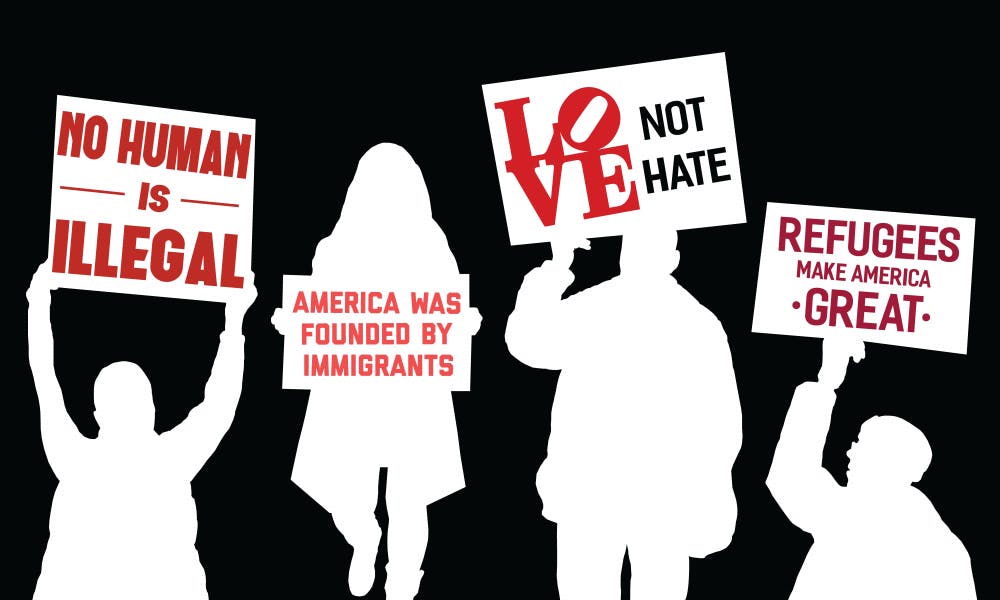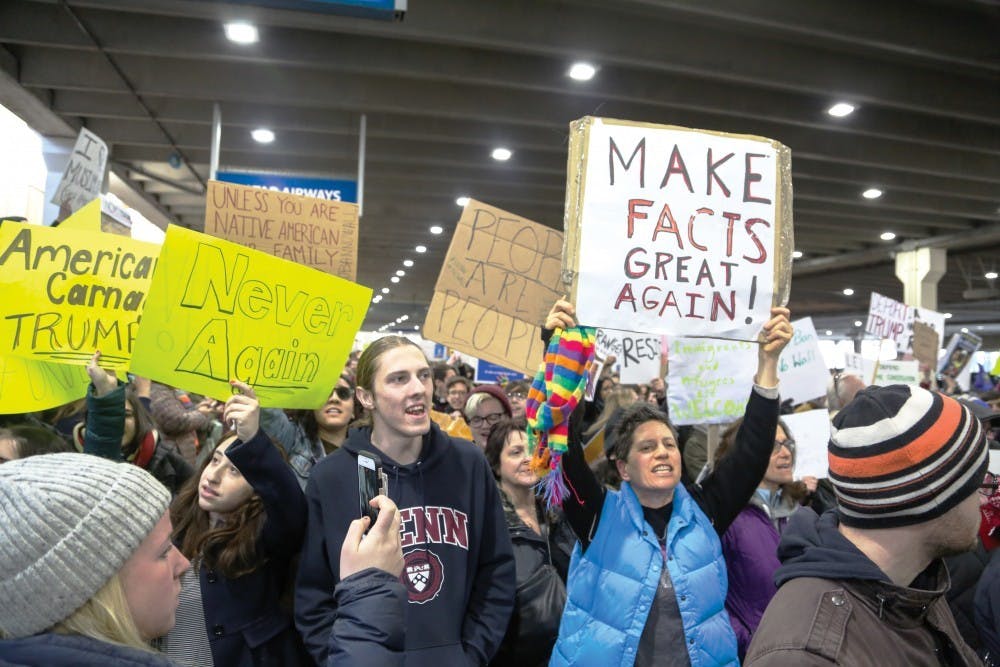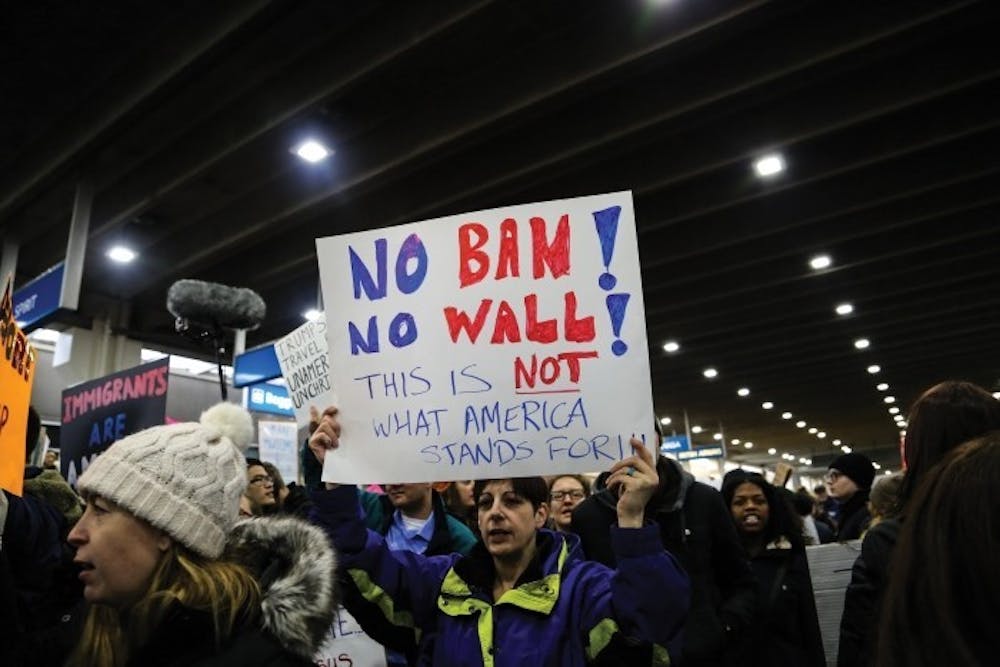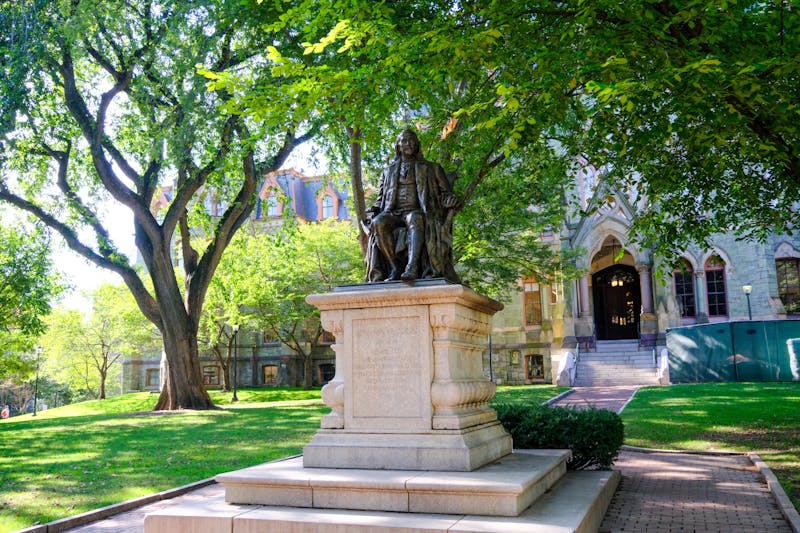
Few changes in federal policy this year have impacted the Penn community as deeply as immigration legislation, one of President Donald Trump's major executive victories so far.
In 2017, travel bans became the biggest topic of discussion in federal immigration policy, forcing some international students at Penn to reconsider their futures in the United States. After multiple versions of proposed travel bans prompted uncertainty for some Penn international students, the U.S. Supreme Court officially decided to fully authorize Trump’s travel ban on Dec. 4 for eight countries: Iran, Libya, Syria, Yemen, Somalia, Chad, North Korea, and, in some cases, Venezuela.
As the end of the year approaches, some of Penn's international students and faculty affected by these immigration policies face the possibility of being unable to renew their visas to stay in the United States. Penn has voiced its support for people affected by the ban, and the University will look to carefully navigate this federal policy in 2018.
To understand the evolution of the travel ban's effects on Penn's campus in 2017, here is a guide to the major milestones:

Penn's international community faced uncertainty as Trump rolled out each version of his travel ban
Only a week after Trump's inauguration, some international students and faculty were forced to re-examine their future in the United States when the initial travel ban was announced.
In January, Trump announced an executive order to ban travel from seven countries — Iran, Iraq, Libya, Somalia, Sudan, Syria, and Yemen — all of which are Muslim-majority nations. The lack of notice from the government led to mass confusion and protests at airports across the country.
Many students at Penn were forced to make a heartbreaking choice: remain in the United States indefinitely, unable to travel home and see their families, or leave Penn and sacrifice the education they had worked to achieve.
Two months later, the Trump administration rolled out a new version of the travel ban. This time, nationals from six countries were banned for a 90-day period, with the exception of permanent residents and visa holders. The third version of the ban was released in September, and despite the attempts of multiple federal judges to block the order, the Supreme Court has allowed it to go into full effect.
While these restrictions will not impact anyone who already holds a U.S. visa, they will affect students whose visas expire before they complete their studies. Otherwise, it will be increasingly difficult to renew. Officials say the ban will likely prevent some students' families from visiting the students in the United States.
Students have not been the only ones affected by the travel ban. Several Penn faculty and staff have spoken out against the policies. Persian literature professor Fatemeh Shams said officials of the U.S. Embassy in Dubai had denied her Iranian mother’s visa without reason. A Penn researcher from Libya said the ban prevented him from attending international conferences, negatively impacting his career.
Though the number of new international students enrolling in U.S. colleges and universities has dropped since Trump first announced his executive order, according to a newly released report, Penn saw a 10 percent increase in international student applications for the 2017-2018 academic year.

The Penn community has voiced its support in various ways for those affected by the ban
In response to the fear and uncertainty that the multiple iterations of the travel ban have prompted members of the Penn community, including University administrators, have voiced their support for those who were affected by this immigration policy.
After Trump first announced his executive order, Penn President Amy Gutmann publicly mentioned Trump by name for the first time since the beginning of his presidential campaign. She called the travel ban “injurious to our work and inimical to our values.”
The Office of the Vice Provost for University Life and other campus groups also held an “interfaith gathering," where students, faculty, and staff came together in solidarity. The Faculty Senate also led a protest on College Green over the controversial order. Presidents of other colleges spoke out against the travel ban and urged Trump to rescind the executive order.
This year has proven to be a challenging one for many members of Penn’s international community affected by Trump’s travel ban, and the University will be monitoring changes in federal immigration policy to help international students and faculty navigate them in 2018.
The Daily Pennsylvanian is an independent, student-run newspaper. Please consider making a donation to support the coverage that shapes the University. Your generosity ensures a future of strong journalism at Penn.
Donate






